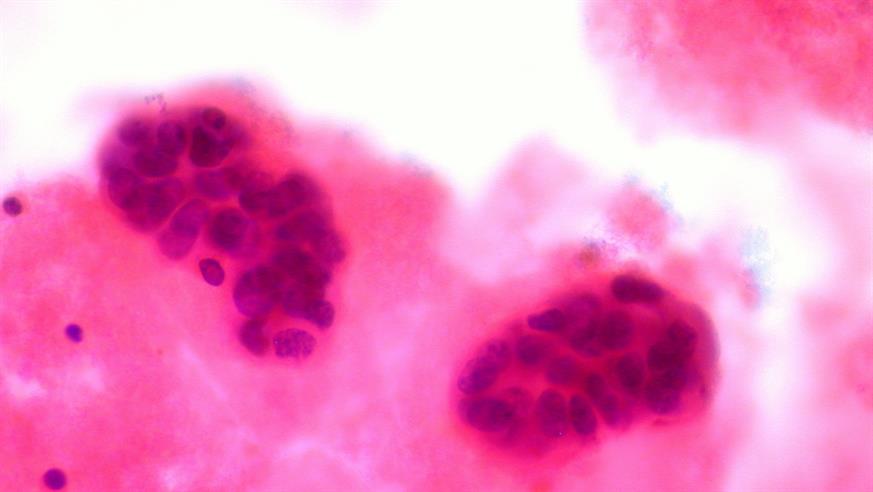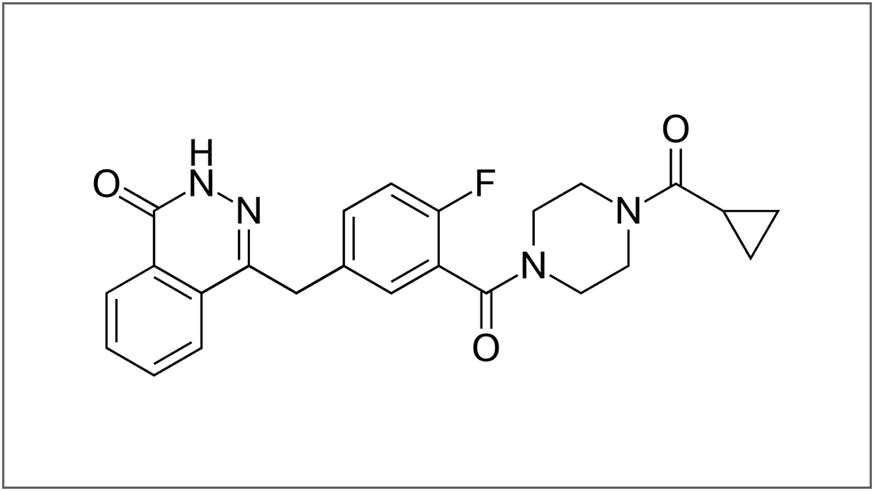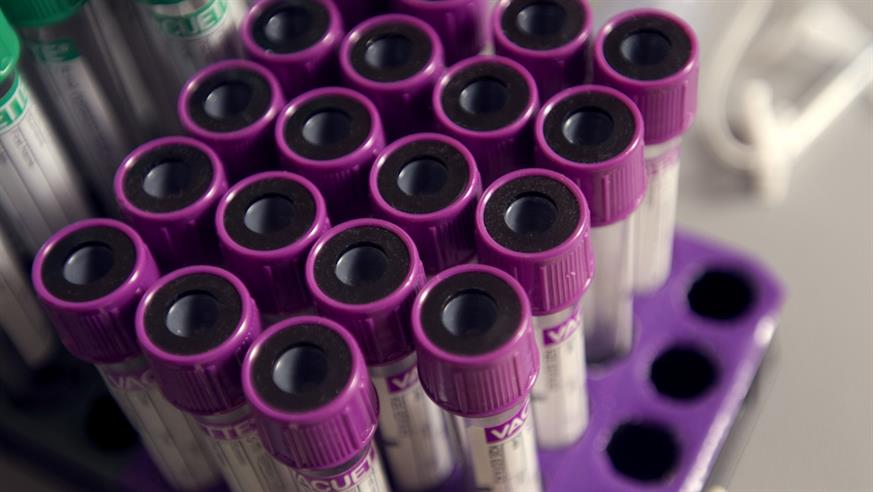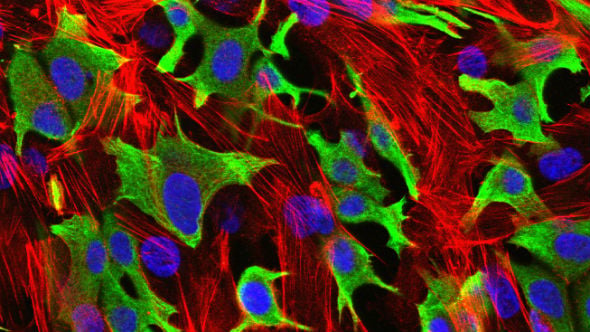
Image of metastatic breast cancer cells in pleural fluid from Flickr user euthman; licensed under a CC BY 2.0 license.
For decades, scientists at The Institute of Cancer Research, London, have been working tirelessly to improve our understanding of breast cancer — and make the discoveries to defeat it. Our research is helping more patients survive breast cancer today. Here are just some of the discoveries our scientists have made.
1. We discovered the BRCA2 gene
Our scientists identified the breast cancer gene BRCA2, which enabled families with a history of breast cancer to be assessed for future risk, and laid the groundwork for developing novel forms of therapy for BRCA-associated cancers.
2. The ICR helped develop a new type of breast cancer drug

Parp inhibitor Olaparib. Source Wikimedia Commons.
Our research has been instrumental in the development of a new class of drugs called PARP inhibitors. These drugs exploit a weakness in cells with mutations to the BRCA genes. They have been shown to be effective in patients who developed breast, ovarian or prostate cancer after inheriting mutations in BRCA1 or BRCA2. One of their strengths is that cancer cells are much more sensitive to them than healthy cells, and so they cause fewer side-effects than traditional chemotherapies.
3. We pioneered a 'liquid biopsy' to detect breast cancer DNA in the blood

Blood samples. Public domain.
A blood test for women with breast cancer can identify women who will benefit from the targeted treatment Herceptin without the need for uncomfortable tissue biopsies. The ‘liquid biopsy’ uses cutting-edge genetic techniques to detect breast cancer DNA in the bloodstream, and was developed by a team at the ICR and The Royal Marsden NHS Foundation Trust.
4. Our research highlighted risk factors for developing breast cancer

A unique study by scientists at the ICR showed that the height and weight of girls before they reach puberty can determine the likelihood of them developing cancer at a young age. The study added to increasing evidence that the development of breast cancer can be attributed to influences at key stages throughout a woman’s life. Further results from the same study also found that day-to-day psychological stress and adverse life events are unlikely to increase a woman’s risk of developing breast cancer.
5. ICR scientists discovered a gene that increases the risk of male breast cancer
ICR scientists working on the Male Breast Cancer Study at the ICR discovered that mutations to the gene RAD51B can increase the risk of breast cancer in men by around 50%. RAD51B has a role in DNA repair and can also increase the risk of breast cancer in women.
A look ahead
We are investing in a new modelling facility to transform our understanding of hormone-sensitive breast cancer. Led by Professor Andrew Tutt and his team, our new facility will help us improve testing models to develop smarter, kinder treatments. With support from our donors, our ultimate aim is to improve the lives of women suffering with breast cancer. Find out more about our breast cancer facility and modelling appeal.
comments powered by